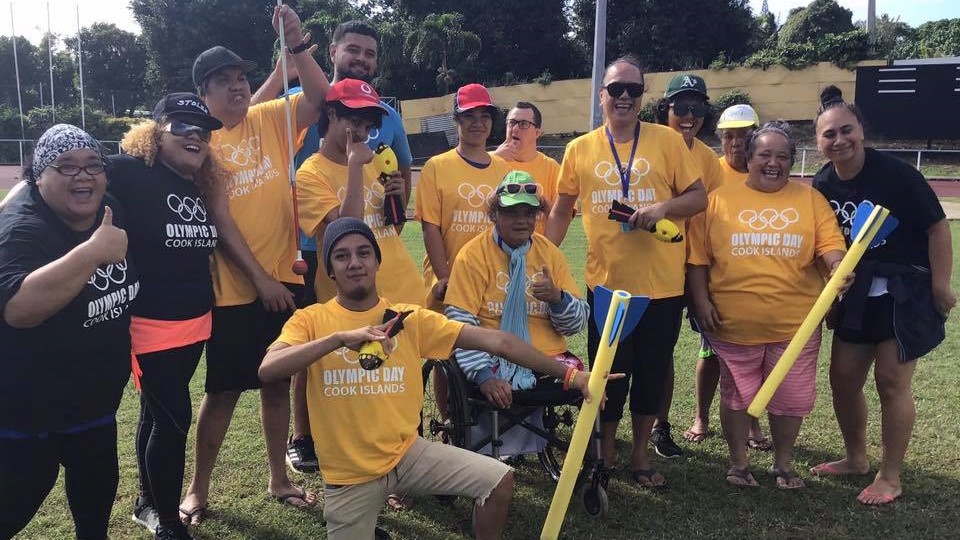Inclusion in the time of pandemic
Tuesday 19 April 2022 | Written by Sian Solomon | Published in Local, National

The Creative Centre members enjoy a day out. PHOTO: CREATIVE CENTRE/22041422
The pandemic has made life more accessible for many people through the use of internet technologies, but in the Cook Islands where the cost of living is high and communication limited, people with disabilities continue to feel ignored and abandoned.
Since 2020, when the coronavirus pandemic placed limits on public life, the disability community around the world have been able to rejoice about one thing – joining in on multiple meetings, events and activities, once held in spaces that were inaccessible to them, but have opened up through the use of technology.
For many of them, these online meetings, social events and virtual activities which for some were considered once unimaginable became possible by necessity overnight.
But here in the Cook Islands where barriers continue to exist, the disabled community continue to be the most impacted by social, political, and economic change, with some of them continuing to have no access to the internet, power or even running water.
“That’s the battle we fight all the time,” says Creative Centre manager Danny Tixier. “Trying to be included in everything.”
“And it’s not just as a person with disabilities,” he adds. “But as a Cook Islander.”
The Creative Centre was established in 2001 as a life skills programme that catered for adults with an impairment.
Over the past two years, able bodied people have reported that the pandemic has improved their quality of life in one form or another. And for the hundred or so Cook Islanders living with a disability, their ability to enjoy work, school or socialise during Covid-19 proved an unexpected expansion of possibility.
For years, they have experienced more discrimination and isolation than any other group in society. They have been asking for more accommodations and accessibility, though many of their requests have often been denied or shelved, on the basis of the time and cost spent to implement them.
“I think there’s a huge gap that we sometimes miss,” shares Tixier, who adds that the Cook Islands has a lot of work to do when it comes to the inclusion of the disabled community.
“And it’s our vulnerable people that fall into those areas in terms of support and care.
“Some of these guys (during the pandemic) … we really feared for how they were,” he adds.
“Because, yes, there are groups of people here that have lots of support. But there are a lot of guys here that don’t.”
As the country continues to gradually reopen its doors to the rest of the world, many in the disabled community are hoping these virtual accesses will outlast the pandemic. They hope a hybrid model where physical and virtual access are universal will allow for people with disabilities to have a more prosperous and fulfilling life.
But for these things to change, the country must work towards having leadership and participation in society of people with disabilities who can help shape an inclusive, accessible world and future beyond the Covid-19 pandemic.
And Tixier believes for that to happen, the policies in the Cook Islands “need to change”.
“I think now more than ever our disabilities in the Cook Islands have come so far,” shares Tixier. “But we are nowhere near where we should be when it comes to helping our people out with disabilities.”
“Our Government has to be committed to building a truly inclusive society and support disabled people to live their lives to their fullest potential if we want to be prosperous,” he adds.
“Because all people with disabilities, all Cook Islanders … should have access to all types of government departments, including things like public transport, education, health, information, and communication services and events.
“(But) you will find people with disabilities here have less access, mainly because they can’t afford to do something, or because of a lot of other things that get in the way like the cost of an internet or mobile plan, etc.”














































